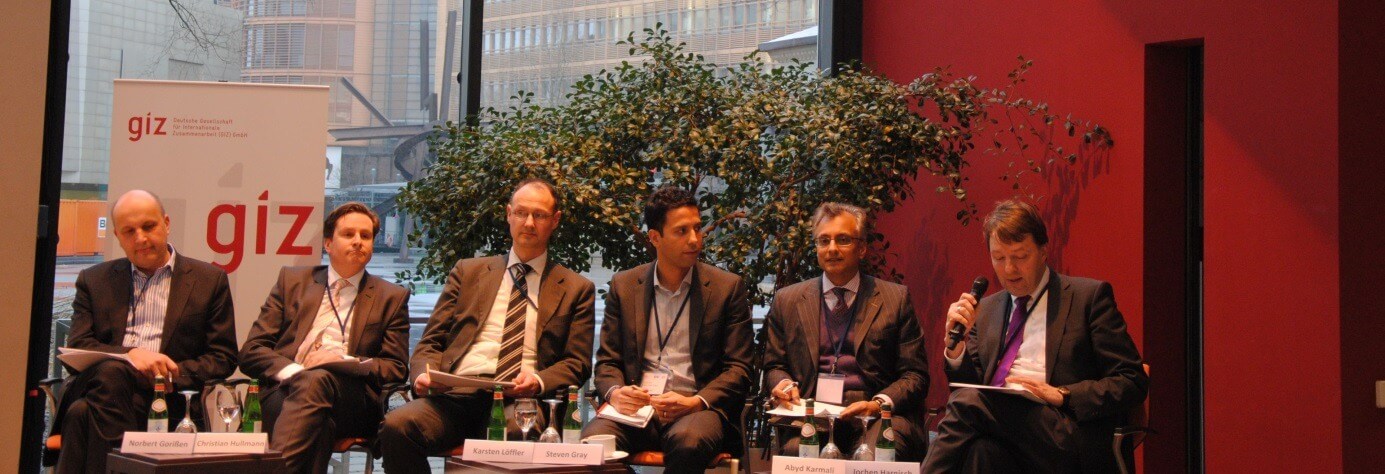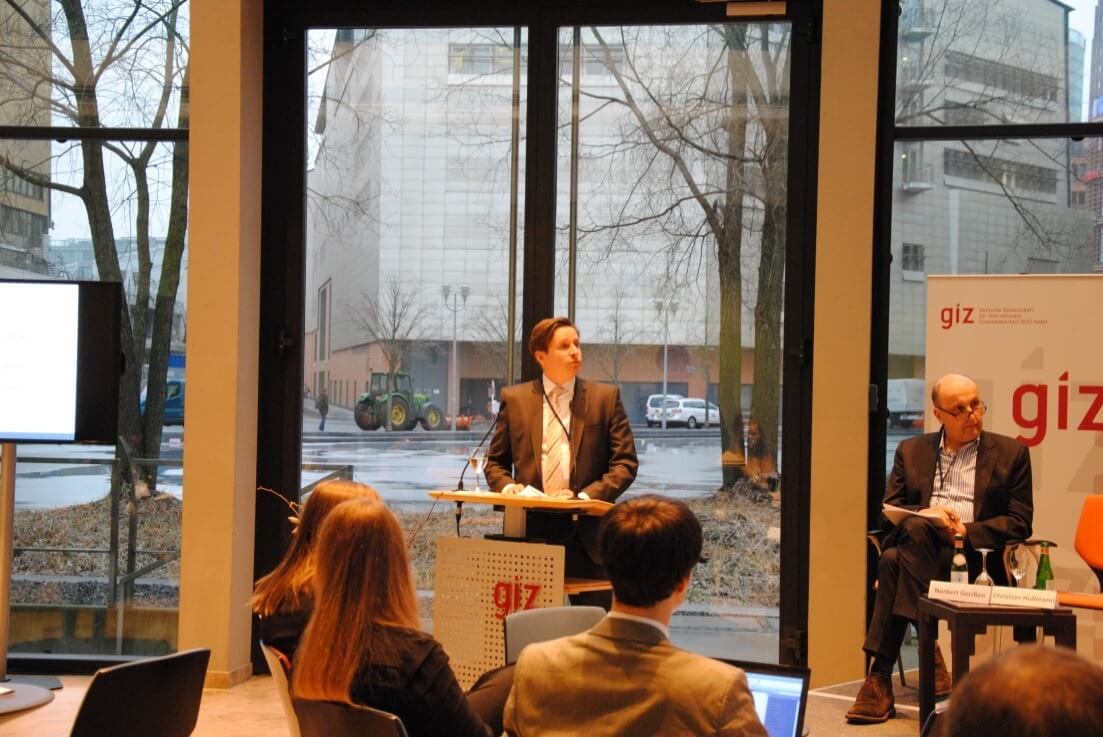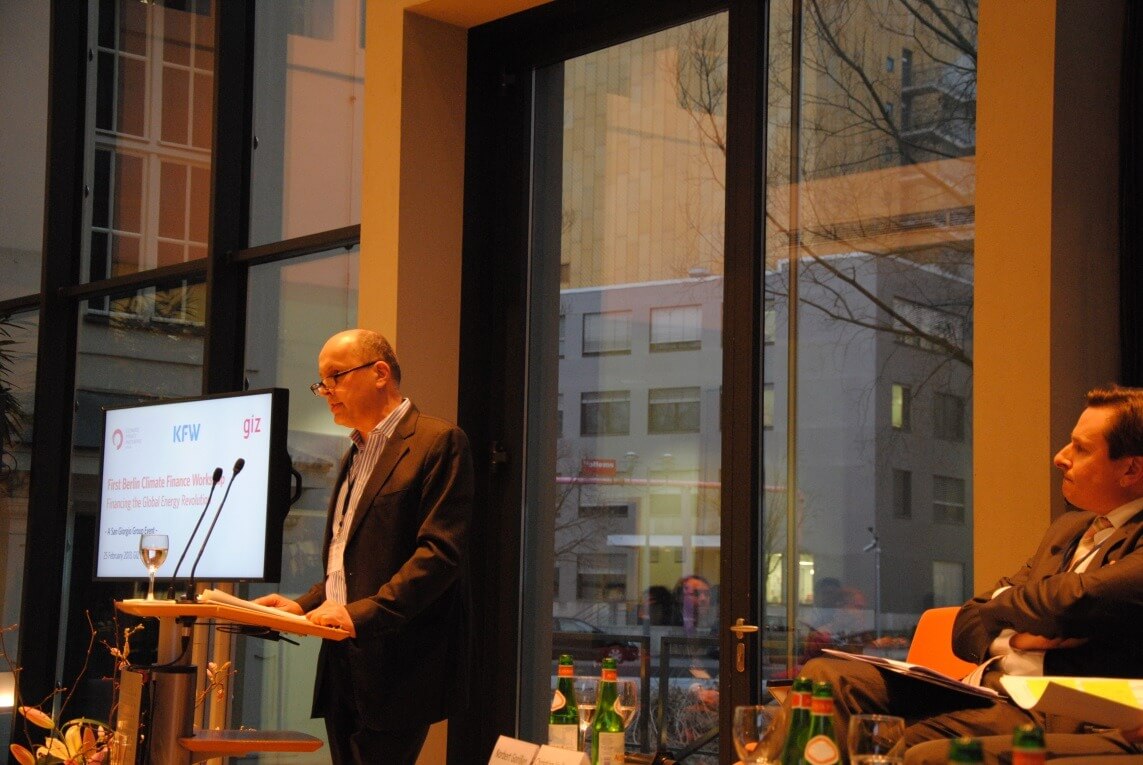Organized by Climate Policy Initiative and KfW in collaboration with GIZ, the First Berlin Climate Finance Workshop took place over a full day on February 25, 2013, at the GIZ Haus in Berlin, Germany. The workshop drew on expertise gained in the San Giorgio Group (SGG) network, a working group established in October 2011 by CPI in collaboration with the World Bank Group, China Light & Power (CLP) and the Organisation for Economic Co-operation and Development (OECD). The San Giorgio Group assembles key financial intermediaries and institutions actively engaged in green, low-emissions finance, such as KfW and Deutsche Bank.
Since the inaugural meeting, the San Giorgio Group has made substantial progress. We have conducted concerted outreach to share and test our analytical work, gathering substantial interest and support in the quest to scale up effective green finance.
The Berlin Climate Finance Workshop provided a platform for a thorough discussion of the state of climate finance on a global and a national level (focusing on Germany), evolving finance practices for energy efficiency and renewable energy, and the role of public policies and the regulatory environment in incentivizing private investments.
For further information on the San Giorgio Group, please contact info@cpivenice.org.
Agenda and Presentations
Welcome
- Barbara Buchner, Senior Director, Climate Policy Initiative
- Jochen Harnisch, Head of Division, Competence Center Environment & Climate/ Coordinator, Climate Change Policy, KfW Development Bank
- Klaus Brückner, Director of the Berlin Representation, GIZ
B. Buchner This session introduced the current debate on climate finance and identified drivers to change directions of green investment patterns, to scale up green, low-emissions finance in both the international and domestic or regional context. Panelists assembled lessons from their analytical work and considered developments over the past years affecting the current climate finance landscape, including new information about the importance of different actors, challenges and factors around the world. Moderator: Peter Wehrheim, Head of Unit Climate Finance and Deforestation, DG Climate Action, European Commission Panelists: V. Marchal, B. Buchner, P. Wehrheim, V. Scholz P. Graichen, V. Marchal Despite strong market penetration of wind technology, offshore wind projects carry aggregated risk factors and face challenges attracting sufficient investment to support large-scale installation. This situation impedes deployment. Existing offshore wind projects may offer insights on viable ways to achieve economies of scale, reduce costs, and close the competitiveness gaps. Panelists drew early lessons from concrete projects in the UK and Germany, exploring the role of government incentives in attracting investors such as institutional investors and discussing challenges emerging from the network and grid integration. Moderator: Dean Cooper, Head, Energy Finance Unit, UNEP Panelists: J. Harnisch, M. Hervé-Mignucci, D. Cooper U. Moslener, J. Harnisch, M. Hervé-Mignucci, D. Cooper H. Sips Energy efficiency and other small-scale projects face particular difficulties attracting private capital, where the local banking sector plays a pivotal role. Panelists both from policy and finance elaborated the specific characteristics and challenges of energy efficiency finance, building on insights from the current Landscape of Climate Finance in Germany and a number of ongoing finance programs. Based on what is working and what isn’t, the panel explored regulatory and financial requirements that need to be in place to scale up investments in energy efficiency. Moderator: Philippe Benoit, Head of Energy Efficiency and Environment Division, International Energy Agency Panelists: H. Amecke, S. Panighetti, J-W. van de Ven, K. Lang, C. Calov, P. Benoit K. Lang, C. Calov, P. Benoit A. Karmali There is no question that there are substantive financial resources available – the real question is how to encourage the direction of investment flows towards low-carbon, climate-resilient development as opposed to other more attractive competing investments. The concluding panel brought together experts from the policy, finance, and project development communities to explore how to accelerate the energy revolution given the proven and theoretical challenges and solutions presented so far during the day. Based on the previous sessions and the San Giorgio Group’s emphasis on learning lessons from evolving practices, panelists highlighted key issues that require attention to render green, low-emissions finance effective. Among other issues, panelists reflected on regulatory aspects and provided perspectives on what is needed in terms of policy processes and analysis to help to ensure that the financing of green and low-emission development becomes more than just a marginal phenomenon. Moderator: Jochen Harnisch, Head of Division Competence Center Environment & Climate/ Coordinator Climate Change Policy, KfW Development Bank Panelists: N. Gorißen, C. Hullmann, K. Löffler, S. Gray, A. Karmali, J. Harnisch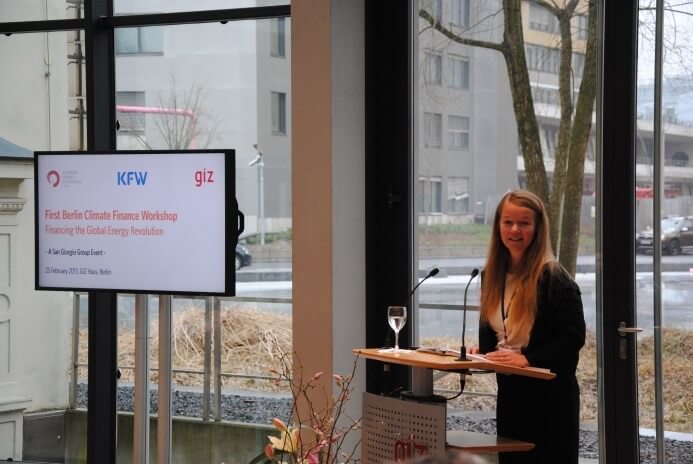
Introductory Panel: Drivers of Change
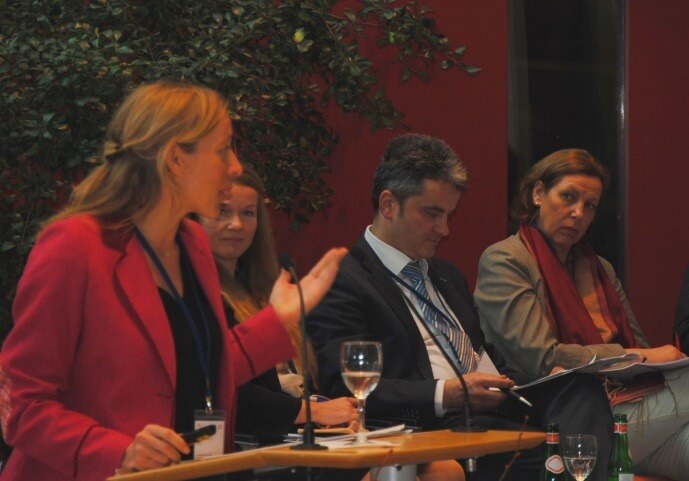
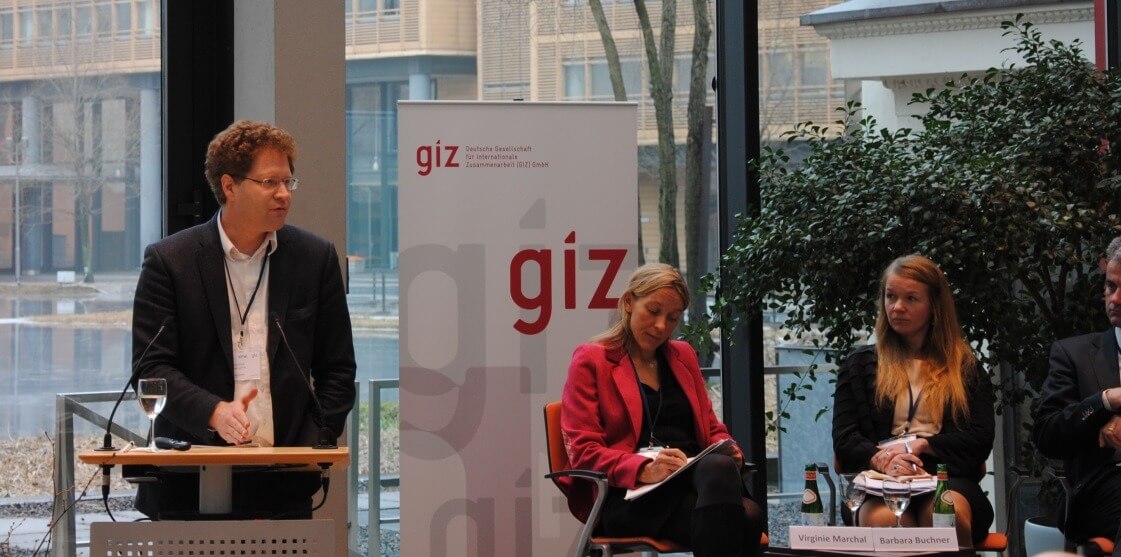
Focus 1: Financing Offshore Wind
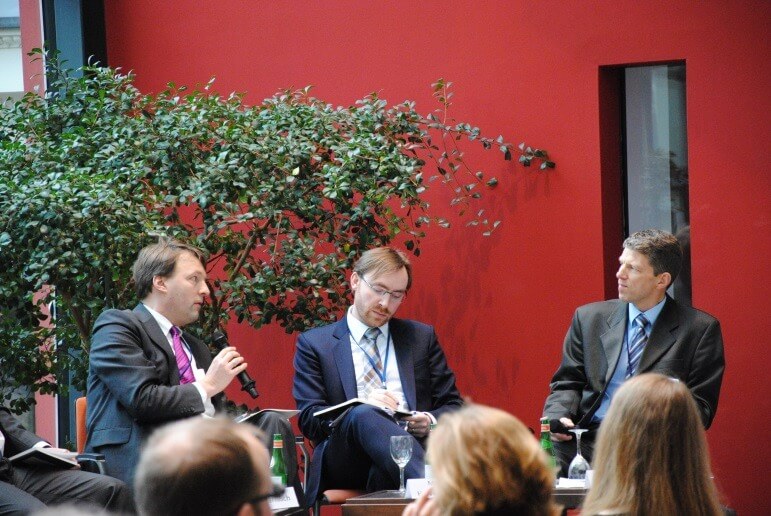
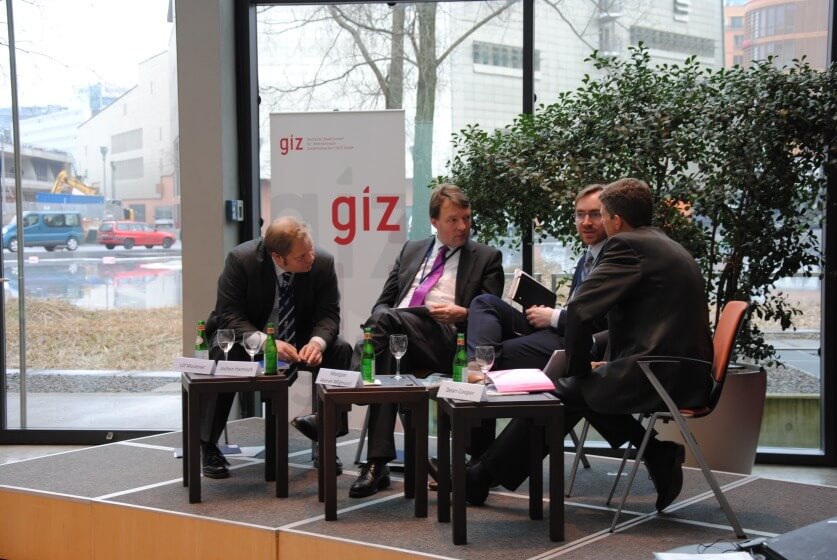
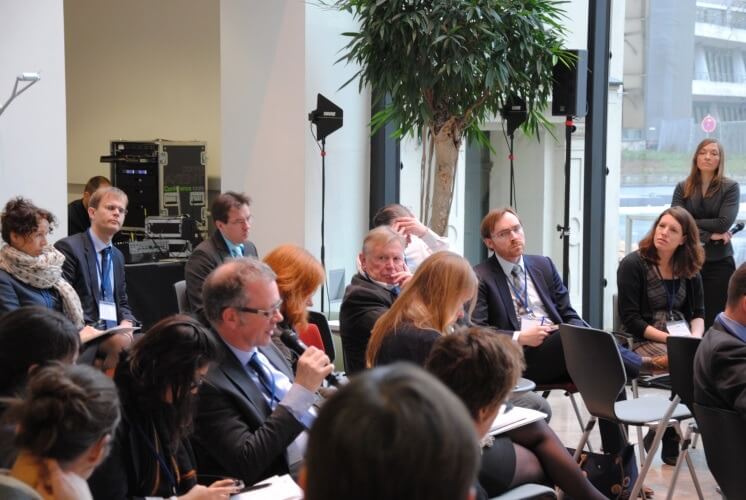
Focus 2: Financing Energy Efficiency
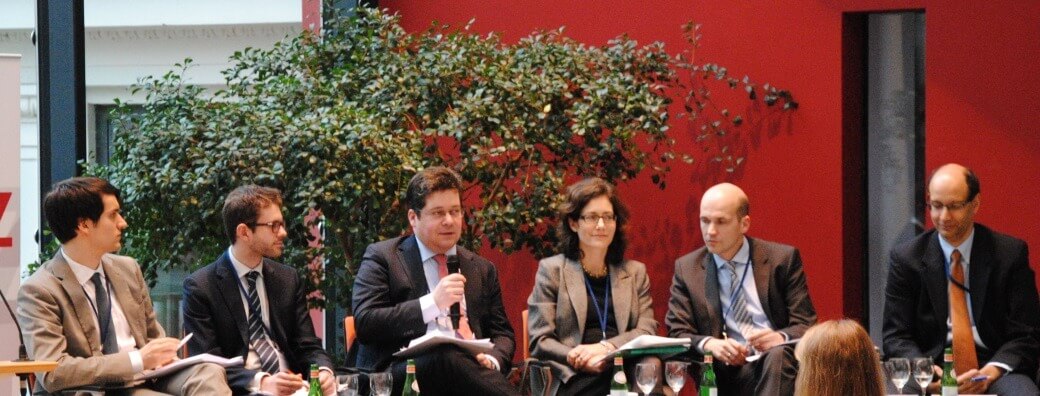
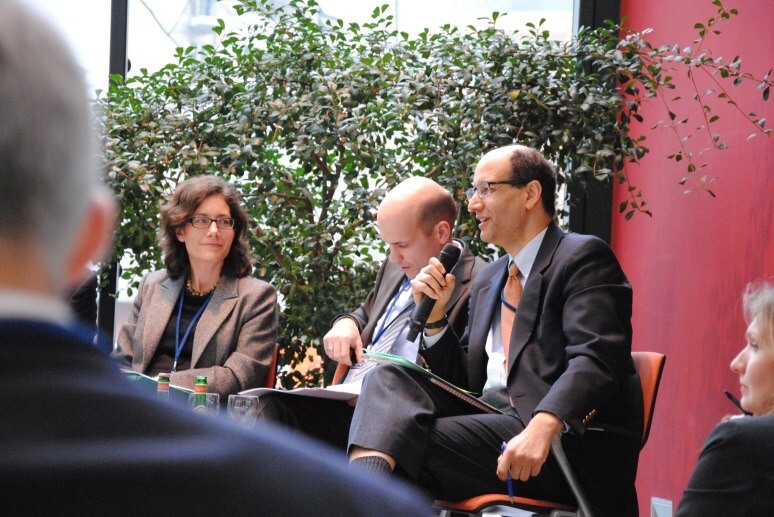
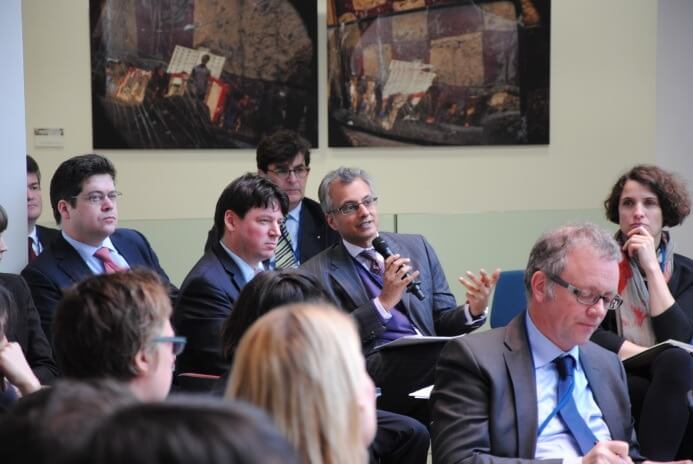
Concluding Panel: Accelerating the energy revolution?
